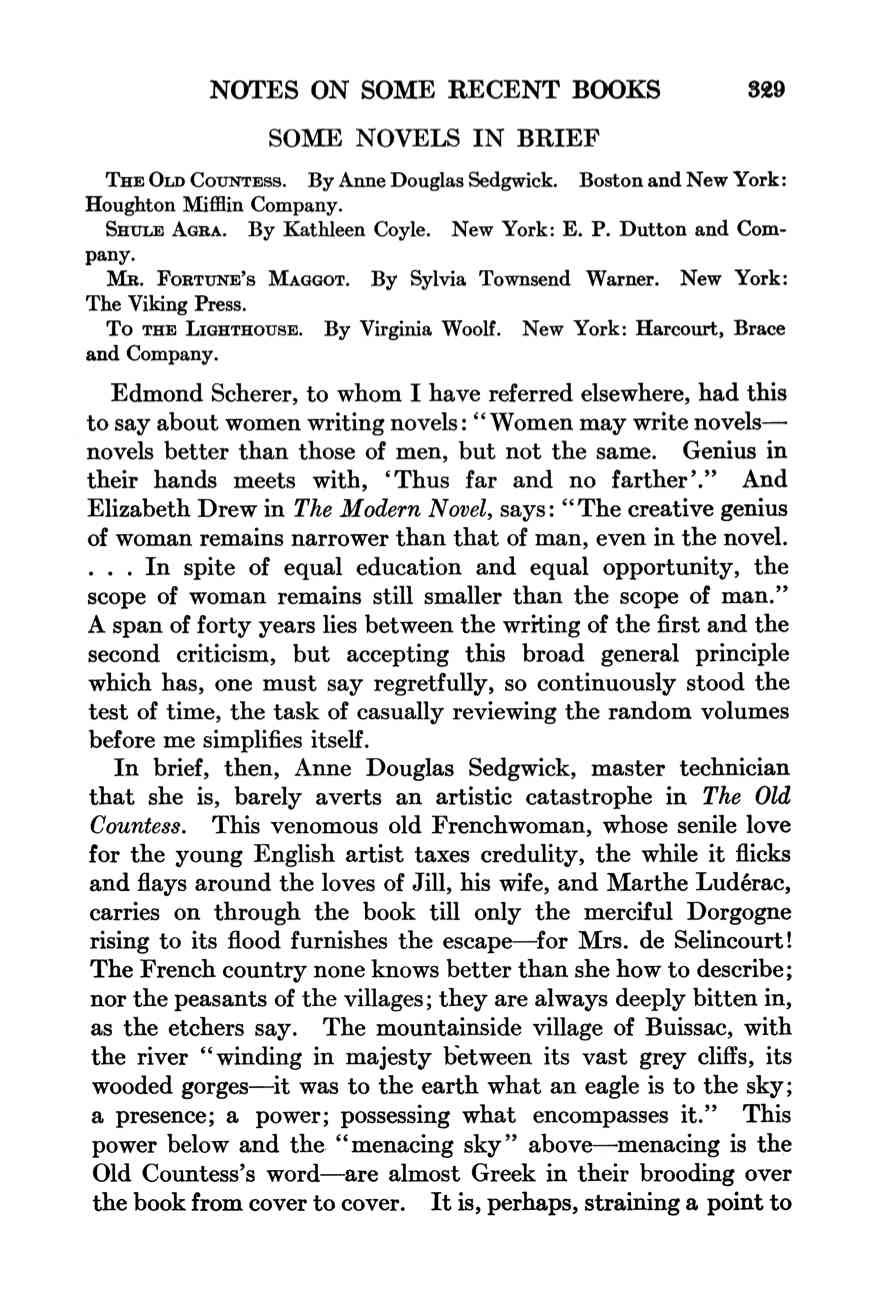
Elisabeth Brown Cutting, ŌĆ£Some Novels in Brief.ŌĆØ North American Review. Vol. 224 No. 835
(June ŌĆō Aug. 1927), pp.329-33.
NOTES ON SOME RECENT BOOKS
SOME NOVELS IN BRIEF
THE OLD COUNTESS. By Anne Douglas Sedgwick. Boston and New York:
Houghton Mifflin Company.
SHULE AGRA. By Kathleen Coyle. New York: E. P. Dutton and Company.
MR. FORTUNEŌĆÖS MAGGOT. By Sylvia Warner. New York:
The Viking Press.
TO THE LIGHTHOUSE. By Virginia Woolf. New York: Harcourt, Brace
and Company.
Edmond Scherer, to whom I have referred elsewhere, had this
to say about women writing novels: ŌĆ£Women may write novelsŌĆö
novels better than those of men, but not the same. Genius in
their hands meets with ŌĆśThus far and no fartherŌĆÖ.ŌĆØ And
Elizabeth Drew in The Modern Novel, says: ŌĆ£The creative genius
of woman remains narrower than that of man, even in the novel.
. . . In spite of equal education and equal opportunity, the
scope of woman remains still smaller than the scope of man.ŌĆØ
A span of forty years lies between the writing of the first and the
second criticism, but accepting this broad general principle
which has, one must say regretfully, so continuously stood the
test of time, the task of casually reviewing the random volumes
before me simplifies itself.
In brief, then, Anne Douglas Sedgwick, master technician
that she is, barely averts an artistic catastrophe in The Old
Countess. This venomous old Frenchwoman, whose senile love
for the young English artist taxes credulity, the while it flicks
and flays around the loves of Jill, his wife, and Marthe Lud├®rac,
carries on through the book till only the merciful Dorgogne
rising to the flood furnishes the escapeŌĆöfor Mrs. de Selincourt!
The French country none knows better than she how to describe;
nor the peasants of the villages; they are always deeply bitten in,
as the etchers say. The mountainside village of Buissac, with
the river ŌĆ£winding in majesty between its vast grey cliffs, its
wooded gorgesŌĆöit was to the earth what an eagle is to the sky;
a presence; a power; possessing what encompasses it.ŌĆØ This
power below and the ŌĆ£menacing skyŌĆØ aboveŌĆömenacing is the
Old CountessŌĆÖs wordŌĆöare almost Greek in their brooding over
the book from cover to cover. It is, perhaps, straining a point to






